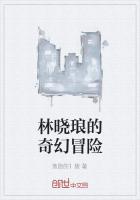The General believes in the enforcement of law and order--His moral influence in the college--Playful humour shown in his letters--His opinion of negro labour--Mr. Davis's trial--Letter to Mrs. Fitzhugh Lee--Intercourse with Faculty Virginia was at this time still under military rule. The "reconstruction" days were not over. My father had himself accepted the political situation after the war, and had advised every one who had sought his advice to do the same. The following incident and letters will show his acquiescence in the law of the land, and ready submission to the authorities. In a street disturbance that spring a student had been shot by a negro, and it was reported that, in case of the young man's death, the murderer would be summarily dealt with by his college-mates. Captain Wagner, the military commissioner, wrote to General Lee informing him of these reports. He received the following reply:
"Washington College, Lexington, Virginia, May 4, 1868.
"Captain Wagner, Commissioner District, Lexington, Virginia.
"Sir: Upon investigation of the reports which you communicated to me yesterday afternoon, I can find no foundation for the apprehension that the students of Washington college contemplate any attack upon the man confined in jail for shooting Mr. --- Friday night. On the contrary, I have been assured by members of the faculty and individual students that they have heard no suggestion of the kind, and they believe that no such intention has been entertained or now exists. I think, therefore, the reports made to you are groundless.
"Very respectfully, your obedient servant, "R. E. Lee."
However, in order to take all precautions and provide against any disturbance, he wrote as follows to the president of the Young Men's Christian Association, whom he knew well and trusted, and who was a man of much influence with his fellow-students:
"Mr. G. B. Strickler, "President Young Men's Christian Association, Washington College.
"I have just been informed by Captain Wagner, Military Commissioner of this district, that from information received by him, he had reason to apprehend that, should the wound received by Mr. --- Friday night prove fatal, the students of Washington College contemplate taking from the jail the man who shot him and inflicting upon him summary punishment. I cannot believe that any such act is intended or would be allowed by the students of Washington College, thought it is possible that such an intention may have been spoken of amongst them. I think it only necessary to call the attention of the students to the report to prevent such an occurrence. I feel convinced that none would countenance such outrage against law and order, but that all will cheerfully submit to the administration of justice by the legal authorities. As the readiest way of communicating with the students, at this hour, on Sunday, I have concluded to address you this letter that through the members of the Young Men's Christian Association the students generally may be informed of the apprehension entertained by the military authorities; and I earnestly invoke the students to abstain from an violation of law, and to unite in preserving quiet and order on this and every occasion.
"Very respectfully, your obedient servant, "R. E. Lee."
The young man recovered, there was no disturbance of any kind, nor was it believed that there would have been, after this appeal from the president, even if the wound had proved fatal.
"Nor was it a moral influence alone that he exerted in the college.
He was equally careful of the intellectual interests. He watched the progress of every class, attended all the examinations, and strove constantly to stimulate both professors and students to the highest attainments. The whole college, in a word, felt his influence as an ever-present motive, and his character was quietly but irresistibly impressed upon it, not only in the general working of all its departments, but in all the details of each. Of this influence General Lee, modest as he was, was perfectly aware, and, like a prudent ruler, he husbanded it with wise economy. He preferred to confine his direct interposition to purely personal acts, and rarely--and then only on critical occasions--did he step forward to present himself before the whole body of students in the full dignity of his presidential office.
On these occasions, which in the latter years hardly ever occurred, he would quietly post an address to the students, in which, appealing only to the highest principals of conduct, he sought to dissuade them from threatened evil. The addresses, which the boys designated as his 'general orders,' were always of immediate efficacy. No single case ever occurred in which they failed of instant and complete effect; and no student would have been tolerated by his fellow-students who would have dared to disregard such an appeal from General Lee."
[Professor Joynes in "University Monthly".]
My father had recovered form the spell of sickness of the previous summer at the Old Sweet Springs, which had weakened and depressed him until about the time he attended my brother's wedding. That marriage had been a great joy to him. His trip there and back, and his visits to "Brandon" and "Hickory Hill," the change of climate and scene, seeing old friends and new places, had all contributed to benefit his health and spirits. I remember this Christmas of 1867 he seemed particularly bright and cheerful. I give a letter he wrote me after I had left for my home which reflects his playful humour and good spirits:
"Lexington, Virginia, January 23, 1868.














